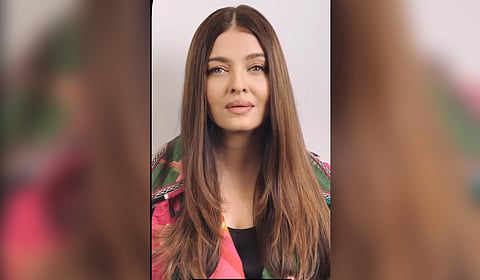

CHENNAI: Actor Aishwarya Rai released a short video in which she spoke about street harassment, to coincide with the International Day For The Elimination of Violence Against Women on November 25. The video was made to promote beauty brand L’Oreal’s Stand Up initiative, a training programme that aims to “prevent street harassment and build safe, inclusive spaces for all”.
Street harassment is such a way of life in many parts of the world, including South Asia, that to name it under the umbrella of violence against women may also be an eye-opener to some. It is useful to frame violence as being on a spectrum, of fleeting opportunistic harassment as being linked in motivation to life-altering or continuous harm, rather than to hierarchise these as separate and unconnected.
The video is not instructional, but it is interesting. During an actual episode of street harassment, taking the video literally — Rai states, “Avoid eye contact? No. Look the problem directly in the eyes” — may be counterintuitive, if not actively dangerous. But Rai using her platform to look straight into the camera and call out the existence of this form of violence may be impactful.
Some of the script of the video is a little vague, for instance when Rai says, or “Never compromise your worth”. While such lines have the ring of make-up advertisements which utilise empowering ideas to push their products, in this case, that logic is fantastically deployed when she says: “Don’t blame your dress or your lipstick. Street harassment is never your fault”. Exactly. The lipstick isn’t the point.
The right to wear it, and indeed to wear anything, and to feel free and be unpunished is. If L’Oreal sells more lipsticks because more people can afford them and enjoy them, and do not feel inhibited from wearing them because of socio-cultural reasons (whether that’s gender conditioning or the knowledge that unwanted attention may come), so be it. The freedom part is what matters.
But that isn’t what sets this video — which is not a commercial per se, but could be described as a public service message with promotional undertones — apart from regular pinkwashing, though. Lots of brands use progressive jargon or imagery to sell stuff. What sets it apart is that Rai says: “Feminine and feminist.”
It would be fair to quibble with the term “feminine” and its myriad connotations and limitations, but to have the word “feminist” be used in a context like this is nothing short of beautiful to my ears. There have been periods in the cycles of public discourse and media focus when the word has been overused or misappropriated.
We are not in such a cycle now. We need feminism both in praxis and on philosophical levels to combat the increase of misogyny on the global scale, and its ingrained persistence here in India. The word — with all its history and its ideology is important.
Rai using it in this video — a fuss-free piece of content that will likely have a global reach, far more than an image in a glossy magazine might — is a helpful mainstreaming of a word, and a way of life, that is often misunderstood.